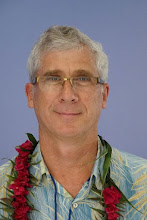
"By studying the history of monasticism and its great heroes we come to realize that, for the Christian, much of what we call "monastic" is purely and simply what being a follower of Christ is all about, and that being a monk, whether inside monastic enclosures or outside "in the world" is simply becoming the sort of person everyone ought to be, a person which unites action and contemplation in the care of souls."
Ed Sellner
Ed Sellner is one of my favorite writers on Celtic Christianity. Then again, I'm biased as he is also a personal friend. Even so, if you want to understand something of the magic and attraction of Celtic Christianity and spirituality, Ed's books are a great place to start. Each is thoroughly researched, a joy to read, and wonderfully presented. I was first introduced to Ed's books, when I had to read The Wisdom of the Celtic Saints as part of my seminary training. Then, I knew little of Celtic Christianity, but I remember a "heart strangely warm" kind of experience as I began reading the book. The opening chapter is one of the clearest and succient introductions to Celtic Christianity that I have ever read. I'll write a seperate post on The Wisdom of the Celtic Saints and some of Ed's other books later, so stay tuned.
Ed Sellner
Ed Sellner is one of my favorite writers on Celtic Christianity. Then again, I'm biased as he is also a personal friend. Even so, if you want to understand something of the magic and attraction of Celtic Christianity and spirituality, Ed's books are a great place to start. Each is thoroughly researched, a joy to read, and wonderfully presented. I was first introduced to Ed's books, when I had to read The Wisdom of the Celtic Saints as part of my seminary training. Then, I knew little of Celtic Christianity, but I remember a "heart strangely warm" kind of experience as I began reading the book. The opening chapter is one of the clearest and succient introductions to Celtic Christianity that I have ever read. I'll write a seperate post on The Wisdom of the Celtic Saints and some of Ed's other books later, so stay tuned.
Finding the Monk Within, was published in 2008. And like Ed's other books, it does not disappoint. Finding the Monk Within demonstrates the enduring value of monasticism. The chapters discuss how "monastic values", specificially certain tastes and values, have helped shape many of the great church figures, movements in the history of the church, and can do so again today.
Sellner argues as other have, that we live in a culture which works against silence, relfection, and inner wisdom. The endless cultural stress on shopping and commercials, mask a deep loneliness and emptiness. Monasticism, and specifically many of the practices of monasticism, can help one develop an inner life and point a positive way forward. One does not have to join a monastery to learn these principles. We can learn by looking to the past where certain monastic figures had a different approach to life, a different perspective, and a different set of values than the mainstream culture. They are important models for us today.
It's an impressive list of personalities that Sellner writes about, and frankly I learned something new about each of the figures presented. Athanasius taught the values of sharing stories, and that one does not have to be a monk to live monastic values. Antony of Egypt emphasised the value of silence and solitude, and how these can foster discernment. Hilary of Portiers and Martin of Tours reminds us of the value of faith, and its communal dimension. Augustine and Monica remind us of the importance of friendship, and that God can reveal Himself in our passions. From Jerome, Paula, and Eustochium, we learn of the need for qualified spiritual mentors and guides. And from John Cassian and the Desert Elders, we learn the importance of confession and sharing our secrets. Briget of Kildare teaches us to have compassion in our ministries. Gregory the Great, Benedict and Scholastica, remind of us of integrating contemplation in our daily lives. Bernard of Clairvaux recommends that we reflect on our personal experiences, using the book of our lives, and book of our hearts.
Finding the Monk Within is a book that deserves to be read by many for both its timely message and simply practicality. Want to learn how others have tried to develop a deep spirituality? Then this book is for you. In addition, Celtic readers will enjoy reading the section on Bridgit of Kildare, and her efforts to bring about double monasteries for both sexes. The book offers a hopeful message which challenges the monk is us all to work on our inner life, and also to develop an asceticm of loving. Such a commitment involves self knowledge, self discipline, and a healthy love of self. Some may be called to enter the cloister, but most will be called to live out their lives in the world.



No comments:
Post a Comment